Imagine this: Lisa, a digital marketer, spends hours every day tweaking her PPC campaigns—adjusting bids, testing ad copies, and monitoring keywords. Despite her efforts, she feels like she’s running on a treadmill, making minimal progress. One day, she discovers the power of PPC campaign automation. Suddenly, her workload lightens, her results improve, and she has more time to focus on strategy rather than manual adjustments.
This isn’t just Lisa’s story—it can be yours too. If you’re still managing your PPC campaigns manually, you’re missing out on the biggest competitive edge available today: automation. Let’s explore how automation tools can transform your PPC efforts, uncover untold tips and tricks, and integrate NLP for maximum exposure.
1. Why PPC Campaign Automation Is a Game-Changer
Automation isn’t about replacing human marketers—it’s about making them more efficient. The digital landscape is fast-moving, and automation tools help optimize bids, analyze performance, and adjust targeting in real time. This means:
- More accurate bidding – Automated bidding strategies help you maximize ROI by adjusting bids based on real-time data.
- Time savings – No more endless hours adjusting settings manually.
- Improved targeting – Machine learning refines audience segmentation, ensuring ads reach the right people.
- Better budget management – Automation prevents overspending and optimizes ad performance.
2. Using NLP for Smarter PPC Automation
Neuro-Linguistic Programming (NLP) plays a massive role in optimizing PPC campaigns. Here’s how:
- Automated Keyword Discovery – NLP tools analyze user search intent, helping identify high-converting keywords before your competitors do.
- Dynamic Ad Copy Generation – AI-powered tools craft compelling, personalized ad copy based on user behavior.
- Sentiment Analysis for Ad Performance – NLP helps gauge audience sentiment towards your ads, allowing for rapid adjustments to tone and messaging.
By integrating NLP with PPC automation, your campaigns will not only perform better but also resonate more deeply with your audience.
3. Hidden Automation Tricks No One Talks About
Most marketers only scratch the surface of PPC automation. Here are some lesser-known tricks to elevate your strategy:
1. Predictive Budget Allocation
Instead of setting a fixed budget, use AI-driven predictive analytics to allocate spending dynamically. For example, if conversions spike on weekends, automation can increase bids during those days and scale back during lower-performing periods.
2. Ad Schedule Optimization
Automation can analyze when your target audience is most active and adjust ad schedules accordingly. Instead of running ads 24/7, your campaigns will focus on peak engagement hours, improving efficiency.
3. Smart Audience Expansion
Traditional lookalike audiences are useful, but AI-powered audience expansion can refine targeting even further by analyzing behavioral patterns and engagement levels, not just demographics.
4. Automated Negative Keyword Lists
Many marketers overlook this. Automation can analyze search query data to dynamically exclude irrelevant terms, preventing wasted spend on unqualified traffic.
5. AI-Powered A/B Testing
Instead of manually testing ad variations, AI tools can run continuous, real-time A/B tests and automatically scale winning versions while pausing underperformers.
4. The Power of Adaptive Learning Algorithms
Imagine a PPC campaign that learns and adapts like a human. This is the power of adaptive learning algorithms:
- They analyze past performance trends – Identifying patterns to predict future success.
- They adapt to seasonal trends – Automatically shifting strategies based on past data.
- They continuously refine targeting – Ensuring that your ads are always reaching the right people at the right time.
For example, let’s say John runs an e-commerce store selling winter gear. Instead of manually adjusting his campaigns as winter approaches, AI-driven automation detects increased search intent for winter-related items and adjusts his bids and ad placements accordingly.
5. Best Automation Tools for PPC Success
If you’re ready to embrace automation, here are some of the top tools to consider:
Google Ads Automation Tools
- Smart Bidding – Uses machine learning to optimize bids in real time.
- Responsive Search Ads – Automates the testing of different headlines and descriptions.
- Performance Max – A fully automated campaign type that optimizes across all Google networks.
Third-Party AI Tools
- WordStream – Automates bid management and reporting.
- Adzooma – AI-powered campaign optimization.
- Opteo – Provides actionable PPC recommendations using automation.
6. Common PPC Automation Mistakes to Avoid
Automation is powerful, but it’s not foolproof. Here are mistakes you should avoid:
- Ignoring manual oversight – Automation doesn’t mean “set and forget.” Regular monitoring is essential.
- Over-relying on AI recommendations – AI suggestions are helpful, but human intuition is still valuable.
- Not customizing automation settings – Default settings don’t always align with your specific goals. Tailor automation rules to your needs.
7. Final Thoughts: Embrace Automation or Get Left Behind
Lisa, from our earlier story, once struggled with manual PPC management. But by integrating automation and NLP, she transformed her campaigns, improved her ROI, and freed up time for higher-level strategy.
Automation isn’t just an option anymore—it’s a necessity. The faster you embrace PPC automation, the more competitive advantage you’ll gain. Whether you’re managing a small business or running large-scale ad campaigns, using automation smartly will lead to better performance, lower costs, and higher conversions.
So, are you ready to let automation take your PPC campaigns to the next level? The future is here—don’t get left behind.

